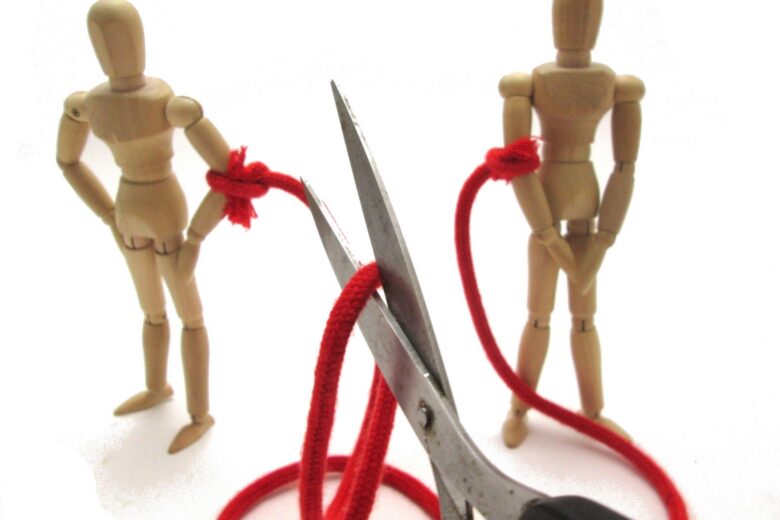Uncovering infidelity in a marriage can be an emotionally devastating experience. Are you struggling with how to respond and pick up the pieces of your relationship?
This article will help you understand the implications of infidelity and guide you on how to move forward. You don’t have to feel lost or alone anymore; this article will give you the support and resources needed to rebuild trust and connection with your partner.

Effects of Infidelity on the Spouses
Infidelity in a marriage can have a devastating effect on both spouses involved. It can cause intense feelings of betrayal, guilt, shame and hurt within the relationship. Those feelings can become amplified by feelings of self-esteem issues, powerlessness and even depression. In addition, there may also be a sense of anger and mistrust that can come with being duped by one’s spouse. There may even be questions as to why one partner would want to seek emotional or sexual satisfaction outside the confines of the marriage. In such cases, couples therapy can play a crucial role in helping the partners navigate these complex emotions and find ways to heal and rebuild their relationship. With the guidance and support of a qualified therapist, couples can work through the pain and anger and find ways to reconcile and strengthen their bond.
It is important to realize that when it comes to infidelity, there are no right or wrong answers; only individual responses at different levels depending on each person’s sensitivity and situation. Regardless of how either spouse feels in response to the infidelity, in order to heal from the pain and rebuild trust within the marriage, it will likely require both spouses committing themselves to an honest journey of self-discovery with time devoted to understanding what went wrong within the marriage prior to infidelity occurring and then working towards making improvements after discovery has been made.
Recognizing the Signs of Infidelity
Infidelity can be an emotionally devastating experience for any marriage. It can lead to low self-esteem, anxiety, and depression. It is very important to recognize the signs of infidelity in a marriage so that you can address the problem before it becomes too bigger causing irreparable damage to your relationship. Some common signs that may indicate that a partner is cheating include:
- A sudden change in appearance – if your partner has suddenly switched up their hairstyle or began wearing clothing you have never seen them wear before, this may be a sign of infidelity.
- Avoidance – if your partner suddenly avoids any physical contact with you or appears to have difficulty communicating with you as they used to do, this could be a sign of imminent cheating.
- Secretive behavior – if your partner frequently goes out without informing you and makes excuses when asked regarding their whereabouts, this could indicate something more serious going on beneath the surface.
- Feeling disconnected – if it feels like there’s some kind of distance between you and your loved one then there might be something more than just normal stress affecting the relationship dynamics between the two of you. Your gut feeling is usually right when something doesn’t feel quite right and things seem fishy so make sure that you fully analyze what’s happening in your relationship before coming to any concrete conclusions about infidelity within a marriage.

Steps to Take After Discovering Infidelity
Quantifying the extent of the harm caused by infidelity can be difficult. It’s not just about assessing broken trust, but also about understanding the root cause of the affair and what can be done to repair or prevent future affairs from happening. The following steps should help couples who are struggling to cope with a partner’s unfaithfulness.
-Take time out from each other and focus on healing: In order for healing to occur, it is essential that both partners take time apart from each other to reflect, regroup and search for better ways of dealing with their emotions. During this step, one or both parties may seek counsel from friends or professionals in an effort to gain support and assistance during this difficult period in their marriage.
-Identify and address core issues: Infidelity is often caused by a breakdown in communication between spouses. This breakdown can range from misunderstandings, resentment, unresolved issues, individual expectations and more. To resolve these underlying issues it is important that couples have honest conversations together without blame or judgement so they can get to the root of what has gone wrong within the relationship.
-Provide commitments to minimize further harm: The last step is providing commitments that signify a stronger sense of commitment between partners going forward so as not to incur further feelings of betrayal down the line. This requires couples being open towards one another about their thoughts and feelings while being truthful about any boundary lines that need putting in place so as to avoid any further situations similar illicit behaviour from happening again.
Seeking Professional Help
When dealing with emotions and issues stemming from infidelity in a marriage, it is important to seek professional help, both for the couple and individually. Therapy can help each party to reflect on what the marriage means to them and understand why infidelity occurred. A therapist will help both parties achieve an understanding, secure their personal goals, foster trust between them, set boundaries and restore respect.
Potential couples counseling could address communication issues that can prevent future breakdowns in the relationship. Asking for assistance from a qualified family counselor is a crucial first step in healing from infidelity in order to rebuild trust and restore the faith between partners.

Conclusion
The decision to stay in or end a marriage after one partner has been unfaithful is a highly personal one, and only the couple involved can make that determination. If you do decide to stay together and rebuild your relationship, it will be important to be patient and understanding with each other, to forgive and make an effort to create an atmosphere of understanding and trust.
Help from family and friends can also be invaluable in providing you both with support and guidance. Finally, seeking help from a qualified therapist or other professional provider may provide expertise that could help the two of you put the pieces of your marriage back together again.

